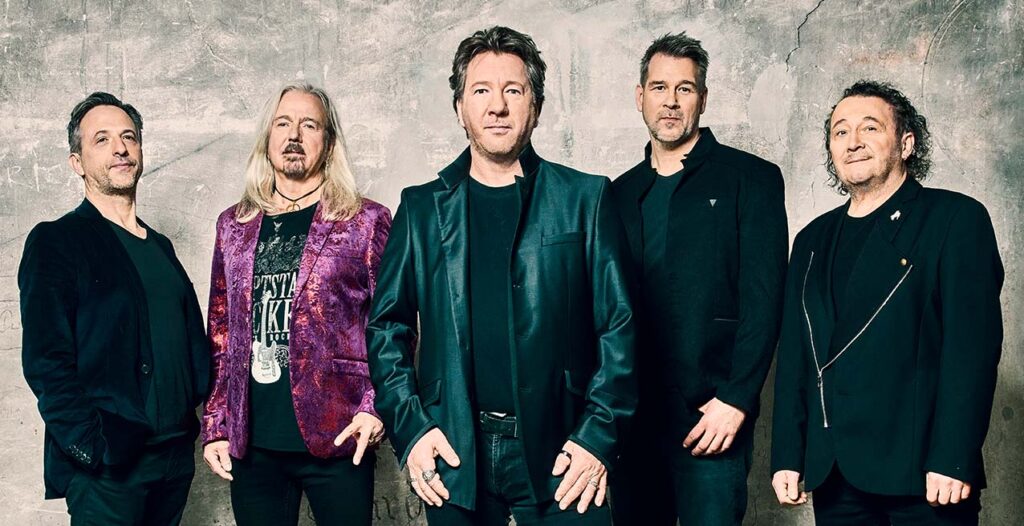Karat is a band founded in East Berlin in 1975. Alongside Silly, City and the Puhdys, Karat is one of the most popular rock bands in the former GDR and has also been enjoying success in West Germany for decades. Karat is known for spherical rock music with lyrical, sophisticated German lyrics.
Lots of movement in the first years of Karat
The band's founding fathers are Henning Protzmann, previously bassist of the East Berlin jazz-rock band Panta Rhei, and Ulrich Pexa, who had previously been guitarist for pop star Frank Schöbel. The original line-up of Karat also includes singers Hans Joachim "Neumi" Neumann and Herbert Dreilich, drummer Konrad Burkert and keyboardist Ulrich "Ed" Swillms.
The band started its career in January 1975 with four recordings for the GDR radio. The first official Karat show took place in February in the culture house in Heidenau near Dresden. In the first year of its existence, the band produced a total of 13 titles, initially exclusively as radio recordings.
However, the original formation of Karat only lasted for a short time: Herbert Dreilich stayed on board as singer, and new members were Bernd Römer on guitar and Michael Schwandt on drums.
With the new line-up, Karat really took off. With the songs “Über sieben Brücken” and “König der Welt” they won the Grand Prix at the International Schlager Festival in Dresden in 1978, a music competition for socialist countries. Karat made their breakthrough with their sensitive ballads. Both songs landed at the top of the GDR's annual charts and are still an integral part of every Karat show today.
The first karate show in Germany
In 1978, AMIGA released the band's first album, titled "Karat", which contained some of the radio recordings they had made up to that point. Just one year later, AMIGA released the LP "Über sieben Brücken" in the GDR, which Teldec released in the FRG almost simultaneously with a slightly different song list under the title "Albatros". Karat was one of the first East German bands to give their first concert in West Germany in the autumn of 1979.
Karat's show and their music were so well received in West Germany that the albums "Swan King" (1980), "The Blue Planet" (1982), "The Seven Wonders of the World" (1984) and "Fifth Season" (1987) were released simultaneously in East and West Germany. Another first: Peter Maffay, a West German artist, successfully covered the song "Über sieben Brücken" (Over Seven Bridges) by an East German band in 1980.
Karat has achieved a great success with the album “The Blue Planet”. Karat are the first Eastern band to make it into the top 10 of the album charts in Germany. The LP stayed in the top 100 for 48 weeks and reached number 8. In addition, after the albums “Albatros” and “Über sieben Brücken”, it is already the second album by the band to reach gold status in Germany.
Time of change – new opportunities
The 1990s also brought a lot of new things for Karat. Like many East German artists, the renowned band lacked opportunities to perform – and success. It wasn't until 1994 that things started to look up again for the musicians.
Karat tickets are sold out again, even at joint concerts with other East German bands under the event name “Rock Legends”. Karat release more albums and once again enjoy great success with their rock music accompanied by classical elements. If you want to reminisce, celebrate together and experience a band that inspires from start to finish of the show, you should see Karat live on tour.
The new voice at Karat
When Herbert Dreilich, the distinctive voice of Karat, succumbed to a serious illness in 2004, many expected the end of the band. But Claudius Dreilich, the son of the former singer, takes over the microphone. Anyone who attends a live Karat show will be amazed at how similar the voices of father and son are. Goosebumps guaranteed!
